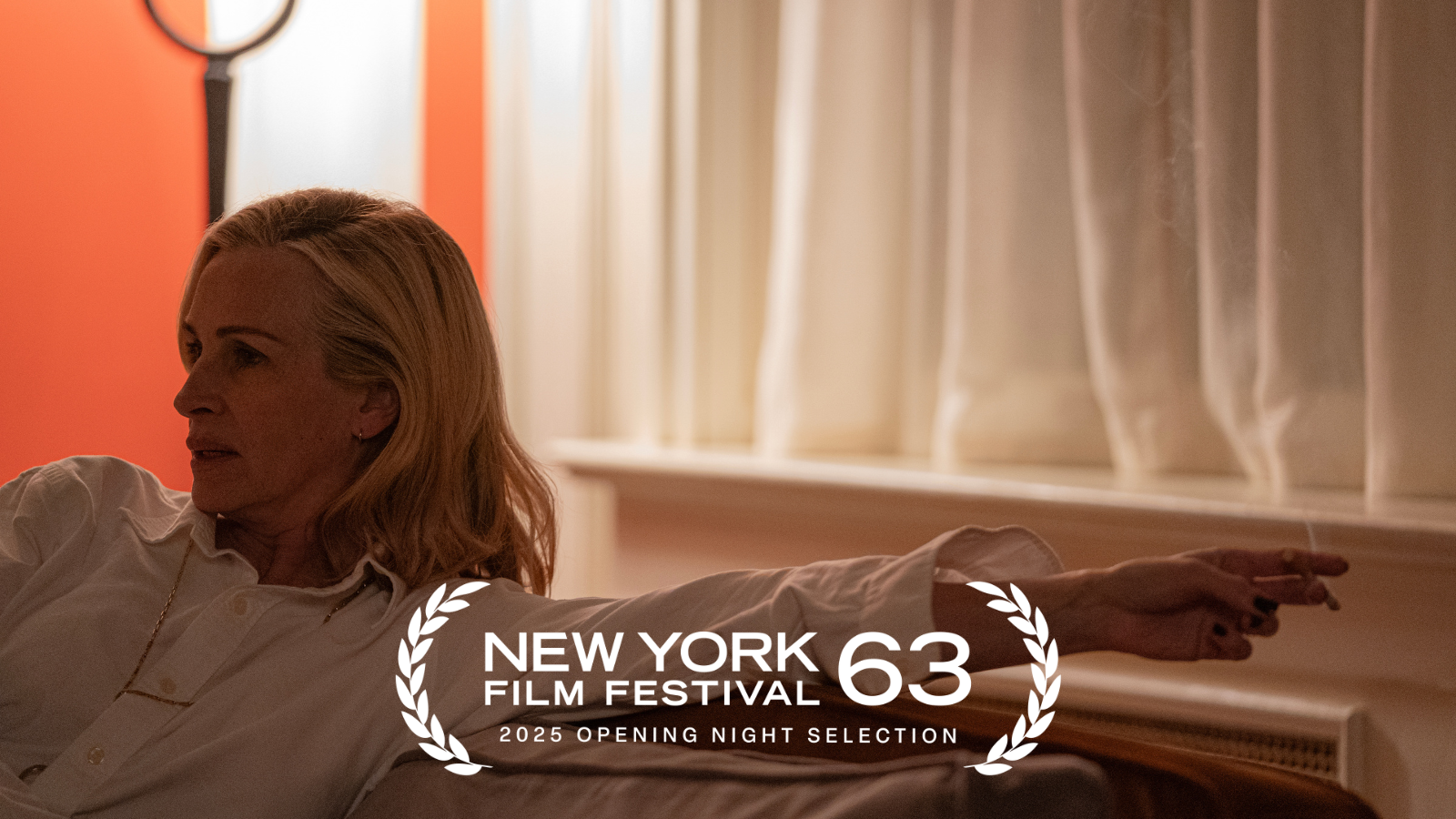We live in a panopticon police state where Yale philosophy professors who drink wine at college bars and ponder virtue ethics at academic soirées also exist in a world where, as the film’s tagline boasts, not everything is supposed to make you comfortable. Luca Guadagnino’s new film After the Hunt demands a buy-in to this alternate reality. Though its teeth are sanded down and its mouth hangs open, Guadagino’s latest project still dares to ask us if it bites.
After The Hunt opens with Alma Imhoff (Julia Roberts), a philosophy professor on track for tenure at Yale, throwing a faculty and student mixer party where academia and ego mingle freely. Among her guests is Maggie (Ayo Edebiri), Alma’s bright, overeager student who over-idolizes her professor. While the adults contemplate the political and economic state of the world, Maggie sneaks into Alma’s bathroom and discovers an envelope with a photograph of a mysterious man taped under the sink – a curious location for a neurotically private person to hide something – which clues that both Maggie and Alma might not be all that they seem.
Soon after, the storm literally breaks. Maggie shows up on Alma’s doorstep, rain-soaked and trembling, confessing that Alma’s charming yet ultimately suspect colleague Hank (Andrew Garfield) forced himself on her after walking her home. What ensues is a murky web of guilt, “cancel culture,” and ulterior motivations. By the time the dust settles, everyone is compromised, but no one has truly risked themselves; the film’s finale offers tidy moral clarity where thornier ambiguity might have been.
When introducing the film on the opening night of the 63rd New York Film Festival, Guadagnino said, “You’re supposed to talk about it,” but what exactly is it? Muddled barbs at power, at post #MeToo reckoning, at academia? It’s hard to take all the buzzy psychobabble and identity politics of Stella Adler graduate Nora Garrett’s overintellectualized script seriously when the film begins with an unmistakable nod to Woody Allen in its opening-credits font. Why play gotcha with what appears to be a tongue-in-cheek reference to a real-life man at the center of sexual abuse scandals? Like so many films that congratulate themselves on being “difficult,” After The Hunt is torn between diagnosing its era and coloring its politics with shades of gray.
Still, there is much to admire. Cinematographer Malik Hassan Sayeed is at his peak, the visuals are exacting; you feel as though you are watching a Guadagnino film, and when is that not a delight? Roberts is magnetic, Trent Reznor and Atticus Ross’ ticktock-ing score is anxiety-inducing, and Frederik (Michael Stuhlbarg), Alma’s husband, is utterly fantastic, stealing the whole show.
The biggest issue with After The Hunt, though, is its overambition and reliance on being something that it is not; it aims to prod us into seeing how reputation and power can smother justice without always grappling with what that really means. Take, for example, Maggie, a shockingly underdeveloped and dry character who also happens to be Black, gay, and extremely wealthy – a fascinatingly rich intersection despite the film’s failure to confront the politics of its own casting. In one of the movie’s final dramatic scenes Alma righteously hounds Maggie for her comfortable silver-spoon lifestyle, yet we don’t really brush up against the fact that she herself is in the throes of a very privileged Ivy League life, not to mention owns a second apartment.
The film treats Maggie’s seriousness and her generation’s moral urgency as a kind of adorable naïveté, a punchline in the ideological divide. But neutrality is not neutrality when you’re in power. The film’s ambiguity creates neither a revolutionary nor morally sophisticated think piece; instead, it uses flimsy centrism to avoid staking a position on any issue it capitalizes on. When a film’s punchlines are pronouns, Morrissey, and anachronistic references to student protest (“No justice no peace,” which is not the proper context for a 2019 Yale campus), what is it that we are really supposed to be laughing at? Luca imagines we are laughing, but really, we are condoning. The film beats us over the head with its politics and refusal to engage in uncomfortability, yet Alma is the one unwilling to change her viewpoint on a subject because she won’t listen to a voice she doesn’t value as much as her own. To treat young people’s moral outrage as idealism is to repeat the patronizing defections of every unjust system that survives by making its critics seem immature.
If this movie left one wishing for sharper edges – and more willingness to make moral judgements, not just pose questions – then it has succeeded in being more than comfortable even when its tagline boasts the opposite.

